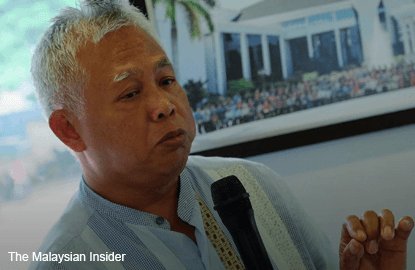
(Oct 22): Putrajaya must use Budget 2016 to help working class citizens cope with economic uncertainty and the rising cost of living, with focus on creating jobs, policies on foreign workers and unemployed graduates, labour and employer groups said.
The ringgit's drop against the US dollar and higher living costs due to the goods and services tax (GST) have affected the working class the most, who also struggle with limited job opportunities, said Malaysian Employers Federation (MEF) executive director Datuk Shamsuddin Bardan.
"Right now, the labour market is so weak, companies are not hiring and there are many who have been laid off. And on top of that, we are facing the problem of graduate unemployment.
"The government has to intervene in the budget. One of the items that need to be dealt with is the unemployment of graduates," Shamsuddin told The Malaysian Insider ahead of Budget 2016 which Prime Minister Datuk Seri Najib Razak will table in Parliament this Friday.
The unemployment rate in Malaysia is 3%, with a growth rate of 3.3% per year for the duration of the 10th Malaysia Plan from 2011 until June 2015.
Shamsuddin said Putrajaya should focus on job creation and also on graduates who have yet to gain employment.
"One of the ways is for the government to give incentives to companies that would take in unemployed graduates," he said.
"If there is no immediate action, we worry that the unemployed graduates will have trouble entering the job market," he said.
Shamsuddin also expressed worry about Malaysia's plan to become a developed country by 2020 as the number of skilled workers in the country stood at 28% - a number which is too small for such a lofty target.
"One of the things that we always raise is skills development. Right now, the percentage of skilled workers in the country is still low.
"We are at 28% and certainly if you want to be a developed country in the next four years, it is supposed to be at 50%. We can see a huge disparity here," he said.
Malaysian Trade Union Congress (MTUC) secretary-general N. Gopal Kishnam also concurred with MEF over the current weak labour market, saying it had received many complaints from laid-off workers.
"If you go to the ground, and check on the number of workers who have been laid off and forced to take the Voluntary Separation Scheme (VSS), it is big.
"There are situations where foreigners are still working but locals are forced to stop," he said.
Gopal estimated the number of jobless Malaysians to be about 50,000.
"This is a huge number and very worrying," he added.
As such, Putrajaya should re-evaluate its policies on foreign labour so that locals would not be affected, MEF's Shamsuddin said.
"The government has to have a look at the policy on foreign workers in Malaysia so that our own people are able to get the necessary jobs.
"It is really sad that when our own people want to work in supermarkets and other shops, they are not given the opportunity whereas foreigners get the jobs.
"So, this is something worrying as we are not prioritising our own people," he said.
Gopal also urged the government to increase the minimum wage to RM1,200 without further delay.
"RM1,200 is a reasonable amount to boost the economy," he added.
Economic analyst Dr Muhammed Abdul Khalid, meanwhile, proposed "unemployment insurance" to protect those who have lost their jobs.
"Seeing as the economic conditions are uncertain and the possibility of slow labour market, there could be a need to develop an unemployment insurance.
"The scheme would help those who have lost their jobs, where they would be given payouts with their last-drawn salaries for three to four months. It will not burden the government as the workers and employers can share to pay the insurance premium," he said.
Najib recently said that Budget 2016 would cater to low-income earners and help the bottom 40% of households.
Analysts have long rang alarm bells over Malaysia's growing wealth inequality, and Muhammad again said that that high household debt was increasing from only 66% in the past decade to almost 89% last year, with the low-income group borrowing from non-financial institutions and paying high interest.
MTUC's Gopal said that the middle- and lower-income workers were the ones hit the hardest by subsidy cuts.
"In Malaysia, almost 65% of families are the middle- and lower-income class who earn less than RM3,000 a month," he said. – The Malaysian Insider